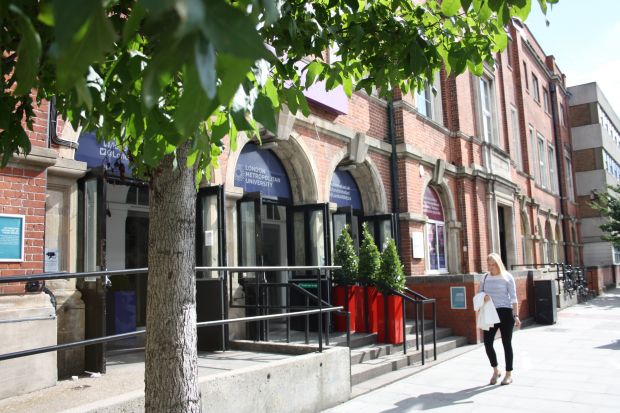Four in 10 members of Muslim staff at London Metropolitan University feel that Islamophobia is normalised at the institution, according to a report.
The survey of Muslim staff was conducted by Sofia Akel, race equity lead at London Met, for the report Institutionalised: The Rise of Islamophobia in Higher Education and found that “39 per cent believe that Islamophobia is normalised at London Met, in so much that staff may freely espouse Islamophobic rhetoric in the workplace”.
It found that 23 per cent did not feel comfortable praying on campus, citing conflicts with work schedules or expectations. The survey also found that 31 per cent did not feel comfortable asking their line managers for flexible working around religious holidays or events, and the same percentage said they felt excluded from staff events or socials because of the presence of alcohol.
One respondent told the survey they had seen staff “sidelined and marginalised due to the not ‘fitting in’, so they may have 10 to 20 years’ experience but when an opportunity comes up, it will always be the non-Muslim colleague with less experience that gets considered”.
According to London Met, the report marks the beginning of a “commitment to improve institutional understanding of the manifestations of Islamophobia” in order to take action to improve university culture and practice. In November 2020, it became the first university to adopt the working definition of Islamophobia, outlined by the 2018 All-Party Parliamentary Group on British Muslims.
For the report, Ms Akel also surveyed 100 Muslim students at the university and found 66 per cent of respondents did not feel comfortable asking academic staff to make adjustments for religious observations.
Respondents to the survey also explained how academic spaces often became forums for “ridicule, injustice and discrimination”, with students recounting being told in their lectures that their beliefs were “medieval” and incompatible with “today’s world”.
The survey found 10 per cent of students reported feeling unable to research topics of interest for fear of being considered “somehow dangerous, or radical” and 26 per cent said they would not stand in student elections or put themselves up for student leadership roles for fear of religious discrimination.
The report points to the wider attainment gap across UK higher education, where only 64 per cent of Muslim students achieve a first or 2:1 in their degrees, in contrast to 80 per cent of students with no religion.
The report recommends that “Islamophobia” must become part of the institutional vocabulary, “embedded in all codes of conduct, and related behavioural policies” and the university must accommodate religious holidays better, for example, by not forcing staff to use annual leave.
The report also recommends an overhaul of the complaints procedures to recognise the subtle forms of racism and microaggressions that exist and that human resources teams and hiring managers must access their practices in relation to the report.
According to Ms Akel, many people “are growing tired of the empty platitudes and virtue signalling that institutions are no stranger to partaking”.
“Universities have failed to see the multifaceted and insidious nature of racism, despite the body of evidence which points towards the institutionalised form that racial oppression takes…Institutions must charge themselves with the responsibility of understanding Islamophobia beyond the superficial – from how it operates through to its potential impact on recruitment processes, the psycho-social environment and to complaints procedures,” she said.
Lynn Dobbs, London Met’s vice-chancellor, said “these findings will inform the direction of our own efforts to make London Met a more welcoming place for members of the Muslim community, and we are looking forward to leading this important work within our sector”.
Register to continue
Why register?
- Registration is free and only takes a moment
- Once registered, you can read 3 articles a month
- Sign up for our newsletter
Subscribe
Or subscribe for unlimited access to:
- Unlimited access to news, views, insights & reviews
- Digital editions
- Digital access to THE’s university and college rankings analysis
Already registered or a current subscriber? Login








